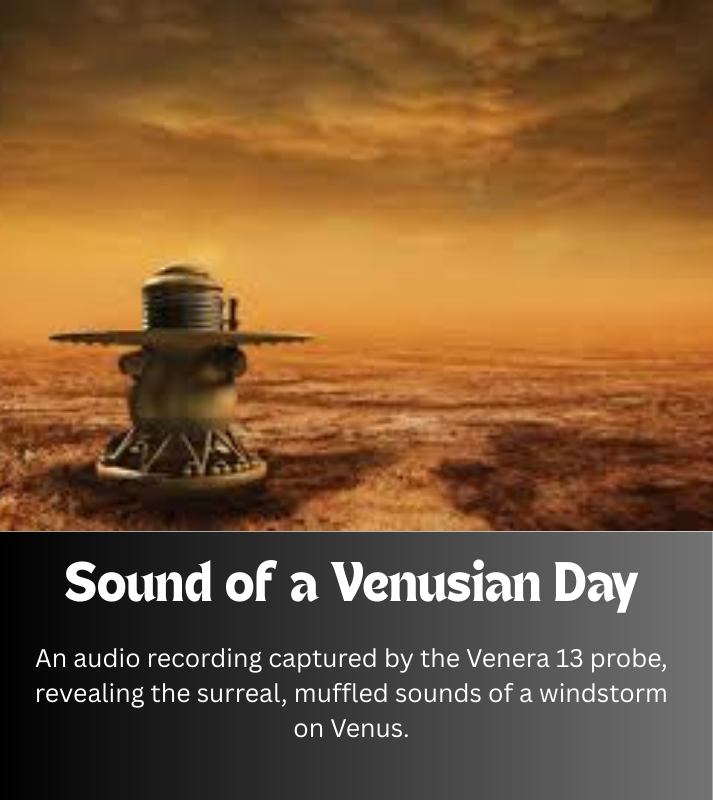The Sound of a Venusian Day
A Broadcast from a Bizarre World


Step into the "1 in a million sounds" section, where we listen to the universe's most unique broadcasts. On March 1, 1982, the Soviet Union's Venera 13 probe completed a historic mission, not just by landing on Venus's fiery surface, but by transmitting the first-ever audio recording from another planet. For a brief moment, we heard the sound of an alien windstorm on a world of crushing pressure and extreme heat.
A Mission Against All Odds 🚀
Venus is not an easy planet to visit. Its surface temperature is hot enough to melt lead, averaging around 465°C (869°F), and its atmospheric pressure is over 90 times that of Earth's—equivalent to being almost a kilometer underwater. Most probes sent there have only survived for a few minutes. The Venera 13 lander, built like a deep-sea submersible, was a triumph of engineering. It was designed to function for just 32 minutes, but it transmitted data for a remarkable 127 minutes, including a few precious seconds of audio.
What We Learned from a Few Seconds of Sound
Listening to a Hellish Soundscape 🌬️
The audio captured by Venera 13 is a fascinating glimpse into a world that is visually hidden by thick, sulfuric acid clouds. What does a "Venusian day" sound like? The recording reveals a muffled, low-frequency rumble—a sound unlike anything we experience on Earth. This isn't the gentle whoosh of an Earthly breeze. The dense atmosphere of Venus causes sound waves to travel differently, creating a deeper, more bass-heavy effect. The sound you hear is the creepy, muffled roar of a windstorm on the planet's surface.
What We Learned from a Few Seconds of Sound 🔬
While the audio is short and contains interference from the probe itself, it provided crucial scientific data. By analyzing the sound waves, scientists were able to determine the wind speed on the surface of Venus, which they found to be very slow—around 0.3 to 0.5 meters per second (about 1 to 1.6 feet per second). This was a surprising discovery, as the planet's upper atmosphere is known for its extreme "super-rotation" winds that can reach hundreds of miles per hour. The recording showed that these hurricane-force winds don't reach the surface, which is good news for any future missions to the planet. This one-in-a-million recording is a powerful reminder that even in the most inhospitable corners of our solar system, there are secrets waiting to be discovered, and that sound can be a remarkable tool for unlocking them. The audio from Venera 13 is not just a scientific curiosity; it's a testament to human ingenuity and our unyielding desire to understand the great unknown.
Discover the extraordinary and unique stories.
Inspire
© 2025. All rights reserved.
